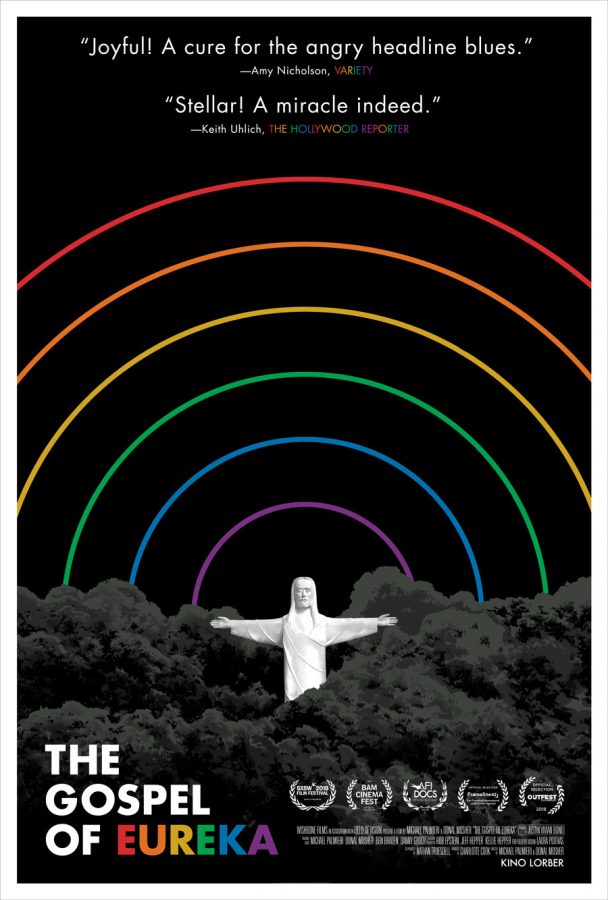“The Gospel of Eureka” is a documentary that intends to shed light on the conflict between the Christian LGBTQ community and the more conservative Christian inhabitants of Eureka Springs, Ark., a small town with a large history of violence and discrimination. The subject matter that the documentary explores is heavy and has the potential to deliver an emotional message. Yet, the film misses the chance to completely yank the veil off, and instead only scratches the surface of the underlying relationship between discrimination and conservatism.
Although the documentary sits at a mere 75 minutes, it feels much longer because most of the film switches between performances by elaborately adorned Christian drag queens in a gay bar and the reenactment of “The Passion Play” by traditional Christians. Unfortunately, directors Michael Palmieri and Donal Mosher bombard the audience with a glaringly obvious dichotomy between the two forms of religious entertainment that sometimes undercuts the documentary’s message. However, it is this difference that highlights the conflicting religious perspectives within Eureka Springs.
Through interviews that vary from liberal humor to passionate conservatism, the audience was introduced to many interesting characters, such as a Christian T-shirt store owner, an elderly transgender woman, a gay couple that has been married for 31 years, an overbearingly conservative play director and incredibly funny drag queens. The film sets itself up well to be an emotional and eye-opening experience that explores how religion and liberalism can coexist in a historically conservative town.
But where it excelled in emotional connection, it failed in presenting new and interesting information. In between narrator Justin Vivian Bond’s commentary on the town’s discriminatory history and shots of “The Passion Play’s” cast, the introduction of Eureka Springs’ youth was so brief, it should have been non-existent. Furthermore, because the film focuses so heavily on Eureka Springs’ older members, it misses another valuable perspective — that of the next generation.
By focusing solely on the elderly, the film misses the chance to explore the perspectives of young minds surrounded by conservatism and liberalism in rural Arkansas.
At surface level, this film tells the emotional story of a small town embroiled in a conflict of ideals. Yet, look deeper and you will find a lack of nuance, new insight and perspectives of the emerging generation that will inevitably inherit this conflict from those that came before.
Email Carlo Servito at [email protected]

























































































































































